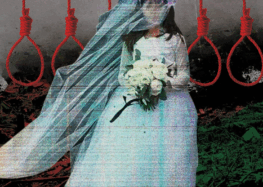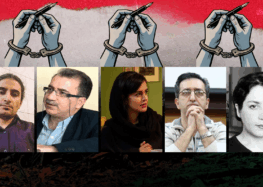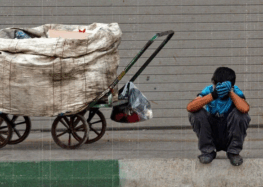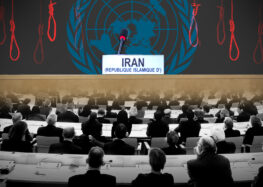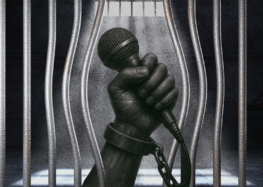Jafar Panahi Sentenced To Six Years In Prison, Banned From Making Films For 20 Years

Jafar Panahi
According to a Iranian Students News Agency (ISNA), film director Jafar Panahi was sentenced to six years in prison and 20 years’ ban from making films, writing any type of screen play, and traveling abroad by Branch 26 of Tehran Revolutionary Courts. Another Iranian film director, Mohammad Rasoulof, was also sentenced to six years in prison.
The International Campaign for Human Rights in Iran reached Jafar Panahi in Tehran to seek his reaction to the news. He told the Campaign he was shocked at the news, but refused to grant an interview.
“The sentence was served to myself and my client on 18 December, and it is unfortunately, a very heavy sentence,” Farideh Gheirat, defense lawyer of Jafar Panahi told ISNA. “Mr. Panahi was sentenced to six years in prison on charges of assembly and collusion and propagation against the regime, and to complete his punishment, he is banned from social rights such as making films, writing any type of screen play, traveling abroad, and interviewing with the media and national and international publications for 20 years,” she added.
Gheirat emphasized she will appeal the sentence within the stipulated deadlines.
Mohammad Rasoulouf’s sentence of six year’s in prison on charges of assembly and collusion and propagation against the regime was also issued. His lawyer told ISNA: “We will object to the issued verdict within the allotted time,” Rasoulof is presently making a film which is pending license at the Ministry of Islamic Guidance.
Jafar Panahi was arrested on 1 March along with his family and 15 guests at his home; he was released on bail on 25 May, after he had gone on a hunger strike and there had been an international outcry for his release. Upon his arrest on 2 March, the Tehran Prosecutor told state news agencies: “His arrest is not because he is an artist and is not political, either. This individual is a suspect for some crimes. He and another individual have been arrested with orders from the case judge, and investigations on the matter are continuing.” An outspoken supporter of the Iranian post-election protesters and the Green Movement, Panahi had been previously arrested at Tehran’s Behesht-e Zahra Cemetery while laying flowers on the graves of some protesters killed during the post-election demonstrations; he was released within a few hours.


